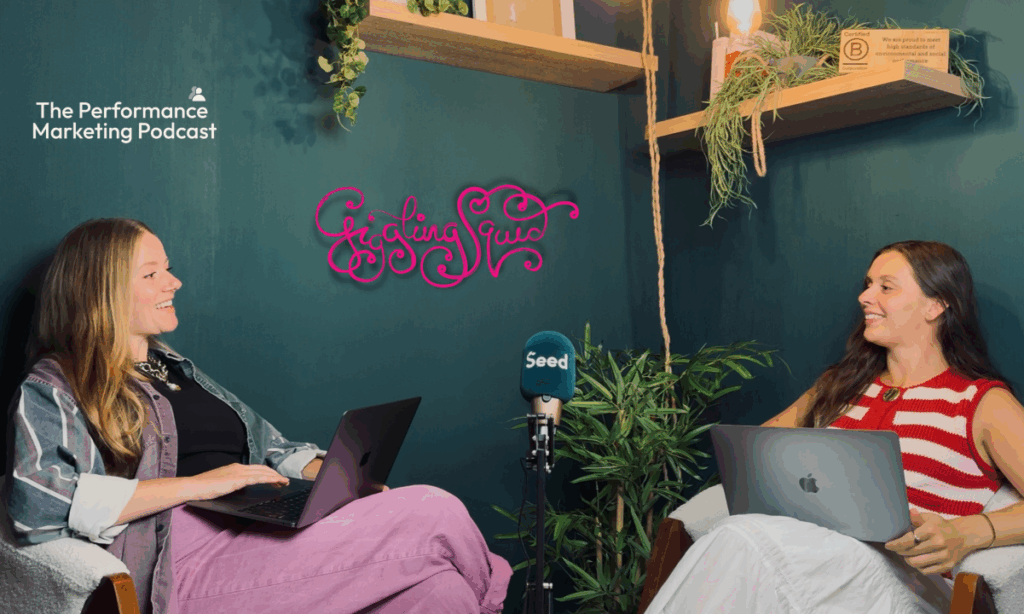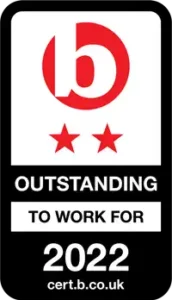“Even if you fall on your face, you’re still moving forward.” ~ Victor Kiam
Company culture is a hot topic right now. As a growing SEO and digital marketing agency, we are loving the process of shaping our company’s DNA.
But why is it that the things we used to value at work, security and money, have shifted towards company values, meaning, community and culture?
My generation, by contrast to my parents and grandparent’s generation, grew up in a time of economic prosperity and rapid tech advancements. We became accustomed to progression; we demand change, the next big thing!
Jobs mean more to us than just security. Digital agencies will have to readjust – a company culture is now a ‘must-have’, rather than a ‘nice-to-have’.
So, what is a learning culture and why is it so important?
A learning culture is a strong set of company values that support and encourage individuals to develop knowledge and nurture their curiosity. It opposes the blame culture, which discourages risks and responsibility due to a fear of criticism or prosecution.
It’s about asking questions and constantly looking forwards by challenging ‘the done way’ by asking; “How can we do this better?”.
A learning culture empowers people with the freedom to exercise creativity and consistently raise the bar. It allows people to think critically and question everything.
It’s about letting teams benefit from sharing knowledge and ideas collectively, which in turn inspires innovation and creativity.
A learning culture makes the most of inexperience by taking on new challenges with a fresh perspective. It enables people to continually search for new ways of doing things without only repeating what they already know.
The benefits of having a learning culture as a digital marketing agency
- Improves team motivation by valuing individual members, supporting self-management and trusting them to make their own decisions.
- Develops thought leaders at all levels, allowing people to flourish.
- Makes learning a habitual and enjoyable experience, rather than an annoying task.
- Keeps everyone at pace with a rapidly changing digital industry.
- Learning leads to progression, which sharpens your competitive edge by setting new standards and leading the way for others to follow.
- Allows more risks in the name of progress and growth, avoid becoming stagnant and irrelevant.
- Enhances everyday learning.
- Removes the hierarchical layer, mutual respect and individual performance becomes fundamental.
Why our learning culture is important to us
“I’ve missed more than 9000 shots in my career. I’ve lost almost 300 games. Twenty-six times I’ve been trusted to take the game-winning shot and missed. I’ve failed over and over and over again in my life. And that is why I succeed.” ~ Michael Jordan
Having a learning culture at Seed is a key ingredient to what makes us successful.
We believe it is the dividing line between what makes a digital marketing agency average and exceptional. Supporting our client’s SEO and digital marketing efforts is an active, participative process where continual learning is inherent because we allow ourselves the freedom to fail.
Having that level of freedom within our company enables us to tackle different ways of working, to experiment with new techniques and to distance ourselves from ‘the done way’. But most importantly, we allow ourselves the freedom to fail and learn from our mistakes.
By ‘fail’ I don’t mean taking meaningless risks at the detriment of our clients, but simply being open enough to say, “What if we tried this instead?”.
SEO and digital marketing agencies that are afraid to ‘fail’ will not progress, and therefore, regress. Google tweaks the ranking algorithm up to 500 times per year, so there really isn’t time to stand still. As a friend of mine said; “If you’re not moving forwards, you are moving backwards.”
Keep moving forwards, even if that means falling flat on your face. Everyone should welcome failure from time to time. There’s a good reason why Google and Apple are leading the way for innovation. But guess what .. Google ‘fails’ all the time.
“I have not failed. I’ve just found 10,000 ways that won’t work.” ~ Thomas Edison
Why you should be a beginner, forever…
Last year I read ‘The Art of Creative Thinking‘ by Rod Judkins. A great, great read – I highly recommend to anyone that wants to understand and develop their creative-thinking process.
In one of the early chapters of the book, Judkins argues the high value of inexperience and even goes on to say that you should avoid becoming an expert at all costs. At first, his argument annoyed me. But I read on and within a few pages, my outlook on expertise was changed forever.
So many agencies, particularly SEO and PPC, refer to themselves as ‘experts’ or ‘specialists’, using past experiences as the basis for their claims. New methods and ideas are a threat to their years’ of expertise.
While it is important to specialise, we believe it’s of greater importance to avoid thinking of ourselves as experts.
When experts ‘become experts’ they tend to take their foot off the gas – “I am an expert in my field, I know it all because I do it every day, there’s no need to try anything new”.
Think back to when you first started in your current position. How much did you learn in your first 12 months of working there? Now compare that period to the last 12 months. Has your learning slowed? Stalled, even?
It’s essential to remain passionately curious about your work and always push your knowledge to the next level. Never remain stagnant, don’t be afraid to explore new opportunities and make difficult decisions.
There’s a famous saying about expertise; “An expert is someone that has made all the mistakes in a very narrow field.” However, experts usually only refer to their previous experiences. Whatever has worked for them in the past, they will repeat.
Why?
Is it safer? Easier? Is it merely because they refer to themselves as an expert and, therefore, rely on their past successes? Or, perhaps it’s because they are afraid to deviate from what has worked before, and, therefore, they are anxious about making mistakes?
Experts tend to turn knowledge into repetitive routine. Many experts claim to have years’ of experience. But what they actually have is one or two years’ experience repeated many times. They quit learning a long time ago.
And that’s why a learning culture is so important to us. Why stand still? What is the point of just surviving? We’re absolutely privileged to work in one of the most exciting, progressive industries in the world. Let people make mistakes, let them learn, let them progress. Nobody has all the answers so let’s be the ones to ask the questions.
Change is inevitable; you should welcome it.
“The story of innovation has not changed. It has always been a small team of people who have a new idea, typically not understood by people around them and their executives.” ~ Eric Schmidt, Chairman, Google.










